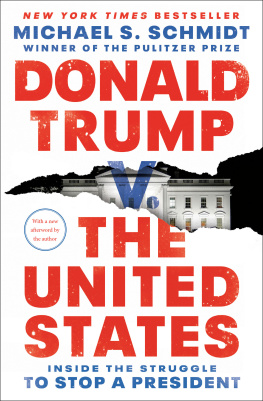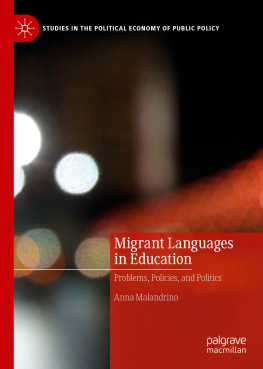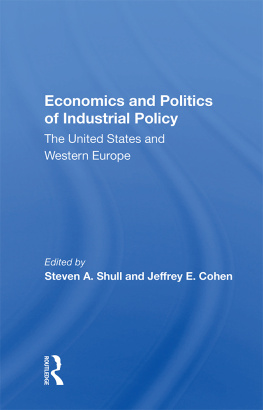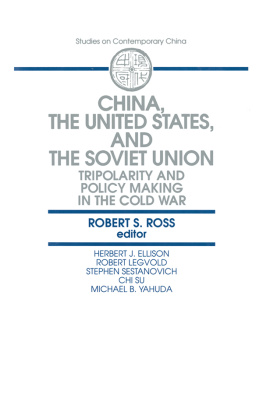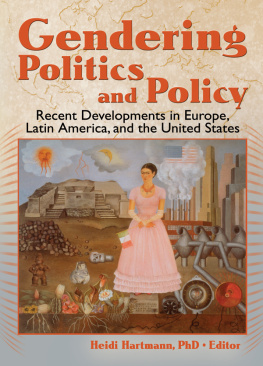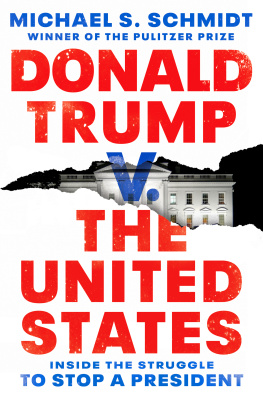Ronald Schmidt - Language policy and identity politics in the United States
Here you can read online Ronald Schmidt - Language policy and identity politics in the United States full text of the book (entire story) in english for free. Download pdf and epub, get meaning, cover and reviews about this ebook. year: 2000, publisher: Temple University Press, genre: Politics. Description of the work, (preface) as well as reviews are available. Best literature library LitArk.com created for fans of good reading and offers a wide selection of genres:
Romance novel
Science fiction
Adventure
Detective
Science
History
Home and family
Prose
Art
Politics
Computer
Non-fiction
Religion
Business
Children
Humor
Choose a favorite category and find really read worthwhile books. Enjoy immersion in the world of imagination, feel the emotions of the characters or learn something new for yourself, make an fascinating discovery.

- Book:Language policy and identity politics in the United States
- Author:
- Publisher:Temple University Press
- Genre:
- Year:2000
- Rating:4 / 5
- Favourites:Add to favourites
- Your mark:
- 80
- 1
- 2
- 3
- 4
- 5
Language policy and identity politics in the United States: summary, description and annotation
We offer to read an annotation, description, summary or preface (depends on what the author of the book "Language policy and identity politics in the United States" wrote himself). If you haven't found the necessary information about the book — write in the comments, we will try to find it.
Language policy and identity politics in the United States — read online for free the complete book (whole text) full work
Below is the text of the book, divided by pages. System saving the place of the last page read, allows you to conveniently read the book "Language policy and identity politics in the United States" online for free, without having to search again every time where you left off. Put a bookmark, and you can go to the page where you finished reading at any time.
Font size:
Interval:
Bookmark:
Cover
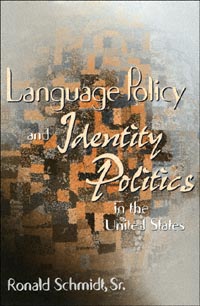
| title | : | Language Policy and Identity Politics in the United States Mapping Racisms |
| author | : | Schmidt, Ronald. |
| publisher | : | Temple University Press |
| isbn10 | asin | : | 1566397553 |
| print isbn13 | : | 9781566397551 |
| ebook isbn13 | : | 9780585382760 |
| language | : | English |
| subject | Language policy--United States, Americanization, Pluralism (Social sciences)--United States. | |
| publication date | : | 2000 |
| lcc | : | P119.32.U6S36 2000eb |
| ddc | : | 306.44/973 |
| subject | : | Language policy--United States, Americanization, Pluralism (Social sciences)--United States. |
Page i
Page ii
In the series
MAPPING RACISMS
edited by Jo Carrillo, Darrell Y. Hamamoto, Rodolfo D. Torres, and E. Frances White
Page iii
Language Policy
and
Identity Politics
in the
United States
RONALD SCHMIDT, SR.

Page iv
| Temple University Press, Philadelphia 19122 Copyright 2000 by Temple University All rights reserved Published 2000 Printed in the United States of America |
 The paper used in this publication meets the requirements of the American National Standard for Information Sciences Permanence of Paper for Printed Library Materials, ANSI Z39.4-1984 The paper used in this publication meets the requirements of the American National Standard for Information Sciences Permanence of Paper for Printed Library Materials, ANSI Z39.4-1984 |
| Library of Congress Cataloging-in-Publication Data |
| Schmidt, Ronald, 1943- |
| Language policy and identity politics in the United States / Ronald Schmidt, Sr. |
| p. cm. (Mapping racisms) |
| Includes bibliographical references and index. |
| ISBN 1-56639-754-5 (cloth : alk. paper) ISBN 1-56639-755-3 (paper : alk. paper) |
| 1. Language policy United States. 2. Americanization. 3. Pluralism (Social sciences) United States. I. Title. II. Series. |
| P119.32.U6 S36 2000 |
| 306.44'973dc21 |
| 99-087484 |
Page v
For Rosemary
Page vii
| Acknowledgments | ix | |
| Introduction: A Politics of Language in the United States? | 1 | |
| I. | THE ISSUES AND THE CONTEXT | |
| 1 | Language Policies in Conflict: An Overview | 11 |
| 2 | Making Sense of Language Policy Conflict | 37 |
| 3 | The Social Foundations of U.S. Language Politics | 69 |
| II. | THE ARGUMENTS | |
| 4 | Historical Perspectives on U.S. Identity Politics and Ethnolinguistic Inequality | 99 |
| 5 | Language Policy and Equality: The Search for Justice | 130 |
| 6 | Language Policy and National Unity: The Search for the Common Good | 163 |
| III. | CRITIQUE AND REFORM | |
| 7 | Flaws at Every Turn: A Critique of Assimilationist, Pluralist, and Confederationist Alternatives | 183 |
| 8 | Pluralistic Integration: Toward Greater Justice and a More Common Good | 221 |
| Notes | 251 | |
| References | 257 | |
| Index | 275 |
Page ix
LIKE OTHER authors, I have looked forward to thanking the many people who helped me in writing this book. The frame of reference that informs my work germinated more than three decades ago in a series of in-depth conversations with Lorenza Calvillo Craig and Albert Molina. The initial occasion was our mutual effort to define and shape an adult education program for Spanish-speaking migrant farm-workers in California's San Joaquin Valley, and this was followed by equally illuminating discussions during Lorenza's subsequent years as a member of the California State Board of Education. For their important contributions to my education on these matters, I am deeply grateful to both of them. My doctoral mentor at the University of California at Riverside, Michael D. Reagan, taught me that it is possible to study public policy systematically while engaging the normative issues that undergird all important policy conflicts. By his example and by his encouragement, he has been a source of inspiration for more than thirty years.
The actual writing and production of this book have taken a decade, and the materials and ideas contained within have been shaped and reshaped through professional conference papers, seminars, published articles and multiple book manuscript drafts. Through this long process I have incurred debts to numerous individuals who read, commented on, and/or discussed the ideas and words that evolved into the present work. At the project's beginning in 1990, a National Endowment for the Humanities Summer Seminar for College Teachers at the University of Wisconsin, Madison, led by Professor Crawford Young, provided an indispensable comparative perspective to a scholar schooled within a U.S. frame of reference. To the NEH and to everyone involved in that seminar, many thanks are due. During the ensuing decade, numerous other colleagues and friends participated with me in professional conferences where they heard, read, and gave helpful criticisms, suggestions, and encouragement on the research papers through which my
Page x
work has advanced. Among these are Tony Affigne, Manuel Avalos, Richard Bourhis, Raymond Breton, Joanne Bretzer, Max Castro, Fae Corsmo, Rodolfo de la Garza, Louis DeSipio, Luis Fraga, Patricia Gandara, F. Chris Garcia, Frank Gilliam, Fernando Guerra, Rodney Hero, Michael Jones-Correa, Jeff Lustig, Reynaldo Macias, Ben Marquez, David Marshall, Paula McClain, Dario Moreno, Noah Pickus, Jaime Regalado, Thomas Ricento, Wendy Sarvasy, Carol Schmid, Christine Sierra, Rogers Smith, Selma Sontagg, Raymond Tatalovich, and Terrence Wiley. Particular thanks are also due to the American Political Science Association and the Western Political Science Association for providing the institutional setting for most of these invaluable conferences.
Throughout my career as a scholar, I have been fortunate to have a faculty appointment at California State University, Long Beach. Although they are all members of a regional teaching institution suffering under an unconscionably heavy workload, my faculty, administrative, staff, and student colleagues at CSULB have succeeded against long odds in making our university a genuine learning community, and as such a continuing source of support and intellectual nourishment for my work. Numerous colleagues at CSULB have patiently supported my efforts by reading and commenting on papers and draft chapters, and/or by listening to my verbal attempts to refine the ideas that have now finally settled into print in this book. Among these are John Attinassi, Mary Caputi, Ken Curtis, Adela de la Torre, Larry George, Bob Gillespie, Maulana Karenga, Larry Martinez, Susan Luevano Molina, Federico Sanchez, George Scott, Christian Soe, Craig Stone, Terrence Wiley, and Terri Wright. I also owe special thanks to two other friends and colleagues at CSULB: Rodolfo Torres, who offered an unfailing support and encouragement throughout the book's long gestation, and then persuasively recruited the project for Temple University Press; and Charles Noble, who not only supported and advised me all along the way, but took time from a sabbatical to read the entire penultimate draft and make numerous helpful suggestions. Several other CSULB individuals and groups, moreover, supported the project, including my department chairs, Robert Delorme and Gerry Riposa, Dean Dorothy Abrahamse, Provost Karl Anatol, and members of the University Scholarly and Creative Activities Committee. CSULB President Robert Maxson, finally, has helped immeasurably by spread
Next pageFont size:
Interval:
Bookmark:
Similar books «Language policy and identity politics in the United States»
Look at similar books to Language policy and identity politics in the United States. We have selected literature similar in name and meaning in the hope of providing readers with more options to find new, interesting, not yet read works.
Discussion, reviews of the book Language policy and identity politics in the United States and just readers' own opinions. Leave your comments, write what you think about the work, its meaning or the main characters. Specify what exactly you liked and what you didn't like, and why you think so.


